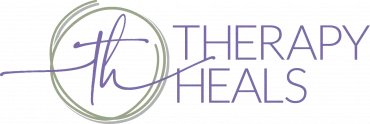
Professional Grief Education
Therapy Heals provides professional grief education to mental health professionals, first responders, and clergy who support and care for people living in the aftermath of sudden or unexpected death. Our professional grief education program combines thanatological grief theory, research from leading experts in the field of grief and trauma, and case studies to prepare students with the knowledge and skills to understand and work with traumatic grief. To begin, students are required to enroll in two prerequisite courses: Foundations of Grief and Foundations of Sudden and Unexpected Death and Traumatic Grief prior to enrolling in any of the seminar courses. Continuing education is available for some courses.
Program Format
At present, courses are provided online and taught by Dr. Jennifer R. Levin, LMFT, FT. Future courses will be expanded and offered in-person. We are in the process of developing a home study program so that students will have the opportunity to engage in independent learning. Seminar courses will introduce students to guest instructors and additional experts in the field of Thanatology to expose them to diverse professionals and clinicians knowledgeable and proficient working with clients who have experienced the sudden or unexpected death of a loved one or living with traumatic grief
Prerequisite Courses:
Foundations in Grief
Enrollment opens soon. New course begins April 24th.
Course Outline.
Foundations in Grief provides mental health professional, first responders, clergy and other helping professionals in-depth knowledge and skills to use when they are working with clients who are grieving the death of a loved one. This course assumes a college level understanding of psychology or previous counseling experience. Students will explore different forms of grief and how grief experiences vary across the life span and in the family unit. The class will examine major theories used in Thanatology to understand and guide the grieving process and introduce different clinical interventions effective for individual’s processing grief. The DSM diagnostic criteria for prolonged grief disordered will be reviewed along with standards used to differentiate grief from other mental health diagnoses. Essential skills such as listening, companioning, assessment, and goals of treatment in grief will be emphasized during the course. Final topics include cultural humility in grief, continuing bonds with loved ones no longer living, and self-care for grievers and providers.
Wednesdays, April 24th-May 29th, 4:00-7:15pm PST – Course Fee, $449.00
(18 hours of NBCC credit available for an additional $75 administrative fee)
April 24, 2024 - Week 1 Course Content: How We Die
Understanding mortality in the United Stated
Understanding the different grief experiences
The grieving experience in our society today
Learning Objectives:
- Students will be able to identify the 5 leading causes of death in the US.
- Students will be able to list and define 5 different types of grieving experiences.
- Students will be able to verbalize 3 reasons why society struggles to accept death.
May 1, 2024 - Week 2 Course Content: How We Grieve
When children grieve
Grieving differences across the life span
How death changes the family system
Learning Objectives:
- Students will be able be present 2 ways that demonstrate children are able to understand the concept of death.
- Students will be able to define 3 differences in the grieving patterns of children, teenagers, and adults.
- Students will be able to explain 2 reasons the family unit struggles for homeostasis after the death of one of its members.
May 8, 2024 - Week 3 Course Content: How We Think in Grief
Theoretical frameworks used to guide treatment in grief
Evaluation & discussion of theoretical frameworks
Learning Objectives:
- Students will be able to identify 2 restorative activities and 2 grief orientated activities from the Dual Processing Model.
- Students will be able to list 2 tasks from Worden’s tasks of Mourning.
- Students will be able to identify 3 of Rando’s Six R Processes of Mourning.
May 15, 2024 - Week 4 Course Content: How We Work in Grief (Part 1)
Assessment in grief
Treatment planning in grief
Essential skills in working with clients in grief
Learning Objectives:
- Students will list three differences between grief and depression.
- Students will describe three benefits of witnessing a client’s grief experience.
- Students will explain 2 reasons normalization is beneficial to an individual who is grieving.
May 22, 2024 - Week 5 Course Content: How We Work in Grief (Part 2)
Clinical interventions in grief using different theoretical orientations
Clinical interventions guided by thanatological models & frameworks
Learning Objectives:
- Students will list a desired outcome of narrative therapy when used with a grieving client.
- Students will identify 2 CBT techniques that can be utilized with grieving clients.
- Students will give one example intervention that can be developed from Worden’s Tasks of Grieving.
May 29, 2024 - Week 6 Course Content: How We Grow in Grief
Cultural humility in grief
Continued bonds
Self-care for professionals and individuals living with grief
Learning Objectives:
- Students will define one act of cultural humility in grief.
- Students will provide one example of an activity a client living with grief can engage in to develop a continued bond.
- Students will identify 3 dimensions and 3 examples in a multi-dimensional self-care plan necessary to work with grieving clients.
Continuing Education
Certificates of Attendance will be provided to each attendee who completes all 18 training hours. Note: No partial continuing education credit can be given. It is required that attendees are present for the entire training in order to receive any continuing education credit.
The Foundations of Sudden Death and Traumatic Grief
Enrollment begins April 2024, course begins May 2024
Grief after a sudden or unexpected death is different from expected death. This course provides foundational information about how and why sudden or unexpected death differs from expected death and explores the traumatic grief that often occurs after such a loss. The course will focus on grief theories and treatment approaches specific to traumatic death, and explore issues often associated with sudden or unexpected death including prolonged grief disorder, blame, regret, and stigma. The course will use case studies and readings from diverse modes of death to explore different clinical concerns. This course is taught by Dr. Jennifer R. Levin, LMFT and Fellow in Thanatology, and includes approximately 15 hours of videos, writing exercises, and potential eligibility for continuing education units. $349
Week 1: Foundations of Sudden and Unexpected Death
- definitions
- causes of death
- differences from expected death
Week 2: Traumatic Grief
- grief theories
- treatment approaches
Week 3: Issues Often Associated with Sudden or Unexpected Death
- prolonged grief
- blame, regret, and guilt
- stigma
Week 4: Case Studies and Clinical Concerns
Seminar Series
The following Seminar Series will be available beginning Summer 2024. Subscribe to the Therapy Heals newsletter for more information.
- unique aspects of an unexpected death by cause of death: homicide, suicide, medical crises, substance abuse, and accidents
- how family systems, relationships, and developmental ages differ in their response to an unexpected death
- what are the long-term consequences of sudden or unexpected death? Does everyone find resiliency, meaning or experience post-traumatic growth?
- how to work with clients who have experienced an unexpected death: integration, interventions, and skills
- the unique elements of suicide loss: guest teacher, suicide expert - Dr. Nina J. Gutin
- when unexpected and sudden death occur at-large: the impact of mass shootings, terrorism, and cumulative grief
